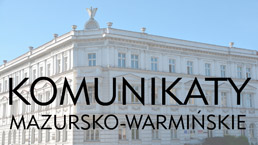Current issue
Online first
Special issues
Archive
About the Journal
Editorial Board
Editorial Council
Reviewers
Editorial guidelines
Publication ethics
Guidelines for reviewing
Remarks on “ghostwriting”
Copyrights and Open Access rule
GDPR Privacy Notice – for the authors of articles sent for publication in the "Komunikaty Mazursko-Warmińskie ("Masuro-Warmian Bulletin")
Contact
Price list
Contacts between the mendicant religious orders and guilds in
the Teutonic Order’s and Royal Prussia in the 14th–16th centuries
1
Uniwersytet Gdański
Online publication date: 2018-10-09
Publication date: 2018-10-10
KMW 2018;301(3):440-461
KEYWORDS
Mendicant Orders (DominicansFranciscansOrder of Hermits of SaintAugustine)Craft Guilds and FraternitiesState of the Teutonic OrderRoyal Prussia
TOPICS
ABSTRACT
The article examines the mutual relations between the mendicants and guilds in the towns of Teutonic Order and Royal Prussia in the 14th–16th centuries. The preserved sources, in their widest extent, concern the issue
of monastic prayer commitments. They show that, in relation to costs, only the largest and richest guilds could
afford to have their own chapels, more had altars within monastic churches, and the poorest could only perhaps
afford to pay individual monasteries for prayer obligations. The documents also indicate that at the time of the monastic economic crisis, caused by the progress of the Reformation and, consequently, the loss of income from the
collection of alms and indulgences, they sought compensation for establishing cooperation with non–guild craftsmen, who, in exchange for paying fees to monasteries, were able to manufacture their products within their service buildings. These rights in Gdańsk and Toruń were confirmed by the king, usually specifying that the named
individual could work only for the needs of the monasteries. Subsequent practice indicated that these provisions
were violated, and attempts to sell goods caused numerous conflicts in which the town council became involved.
Share
RELATED ARTICLE
We process personal data collected when visiting the website. The function of obtaining information about users and their behavior is carried out by voluntarily entered information in forms and saving cookies in end devices. Data, including cookies, are used to provide services, improve the user experience and to analyze the traffic in accordance with the Privacy policy. Data are also collected and processed by Google Analytics tool (more).
You can change cookies settings in your browser. Restricted use of cookies in the browser configuration may affect some functionalities of the website.
You can change cookies settings in your browser. Restricted use of cookies in the browser configuration may affect some functionalities of the website.




